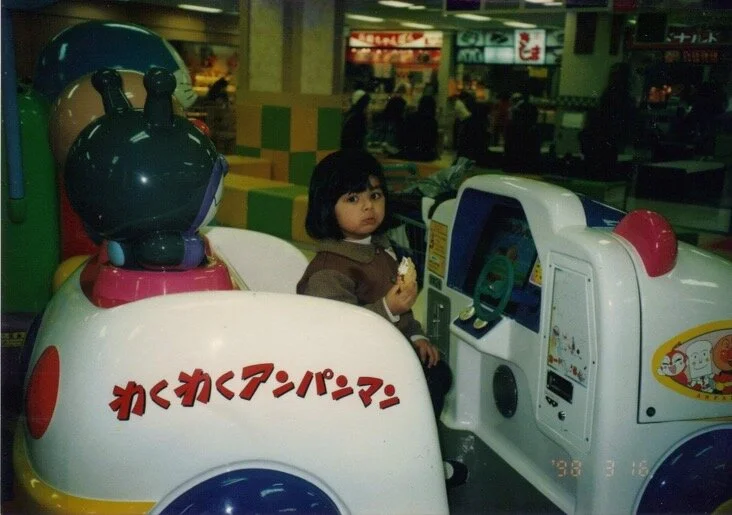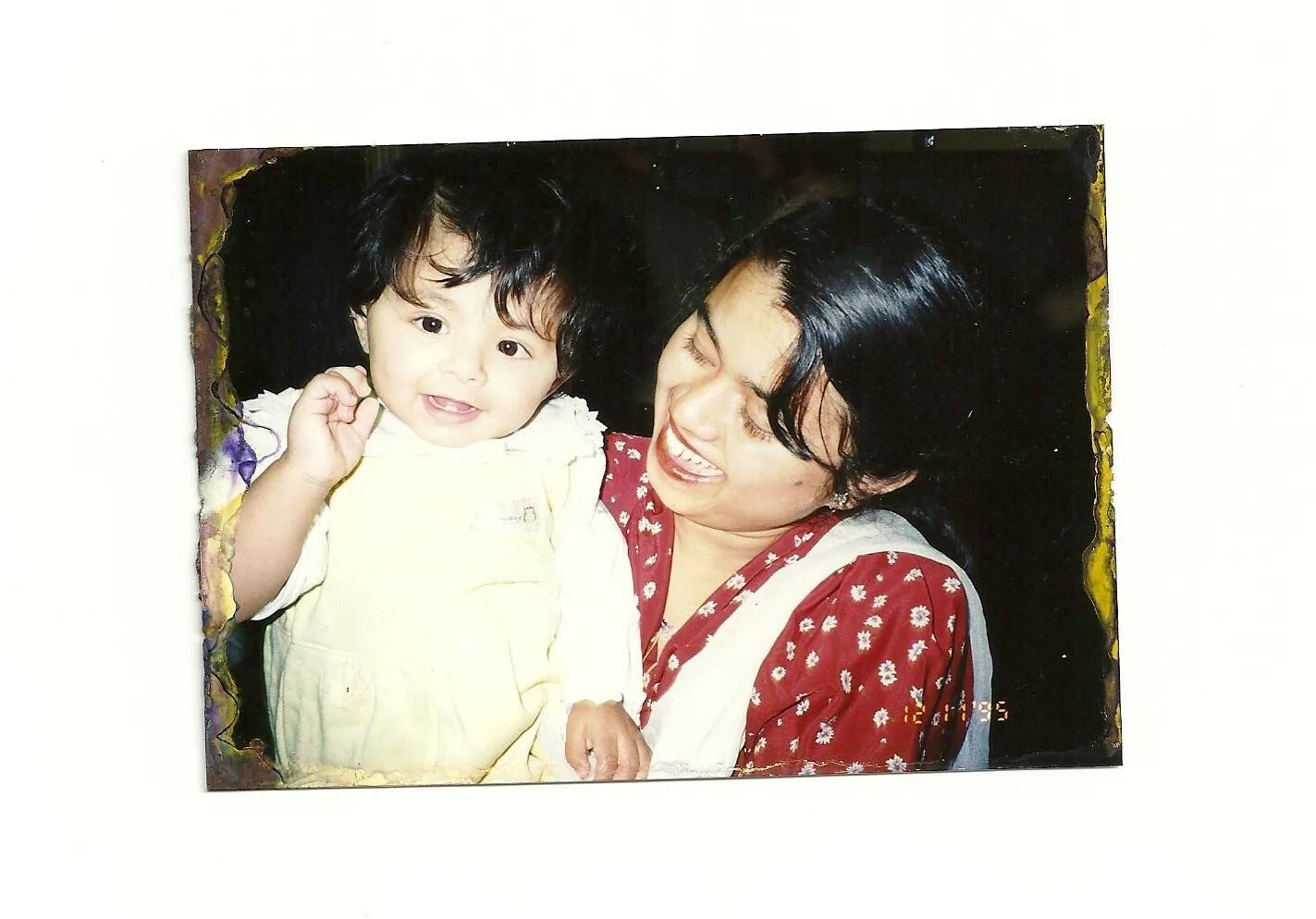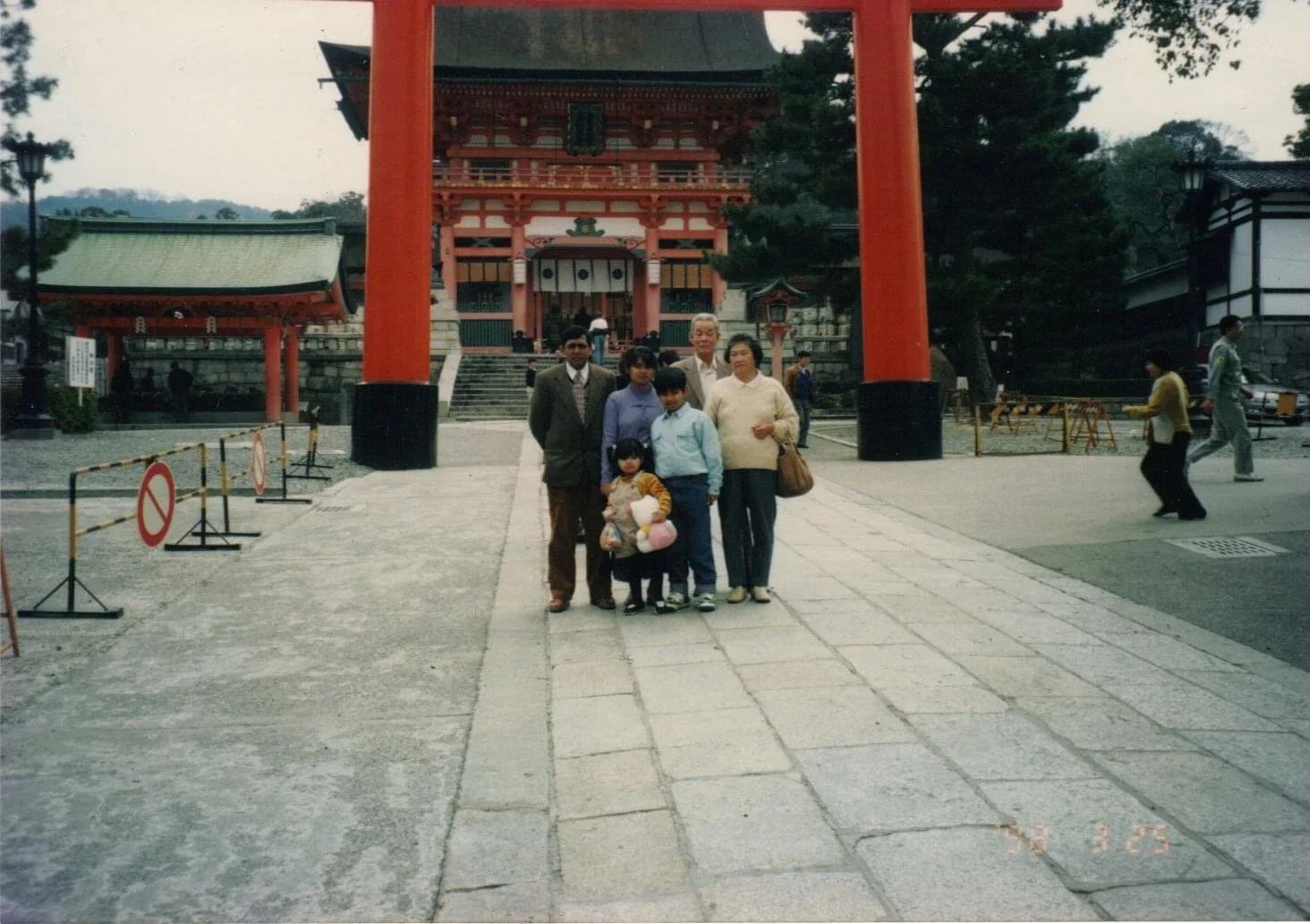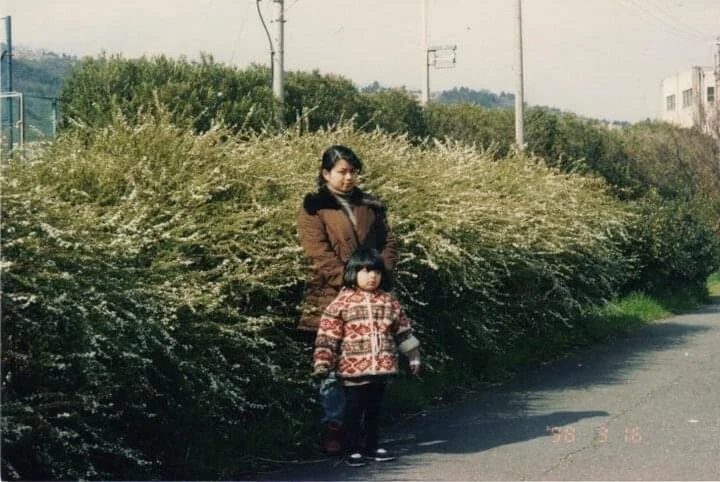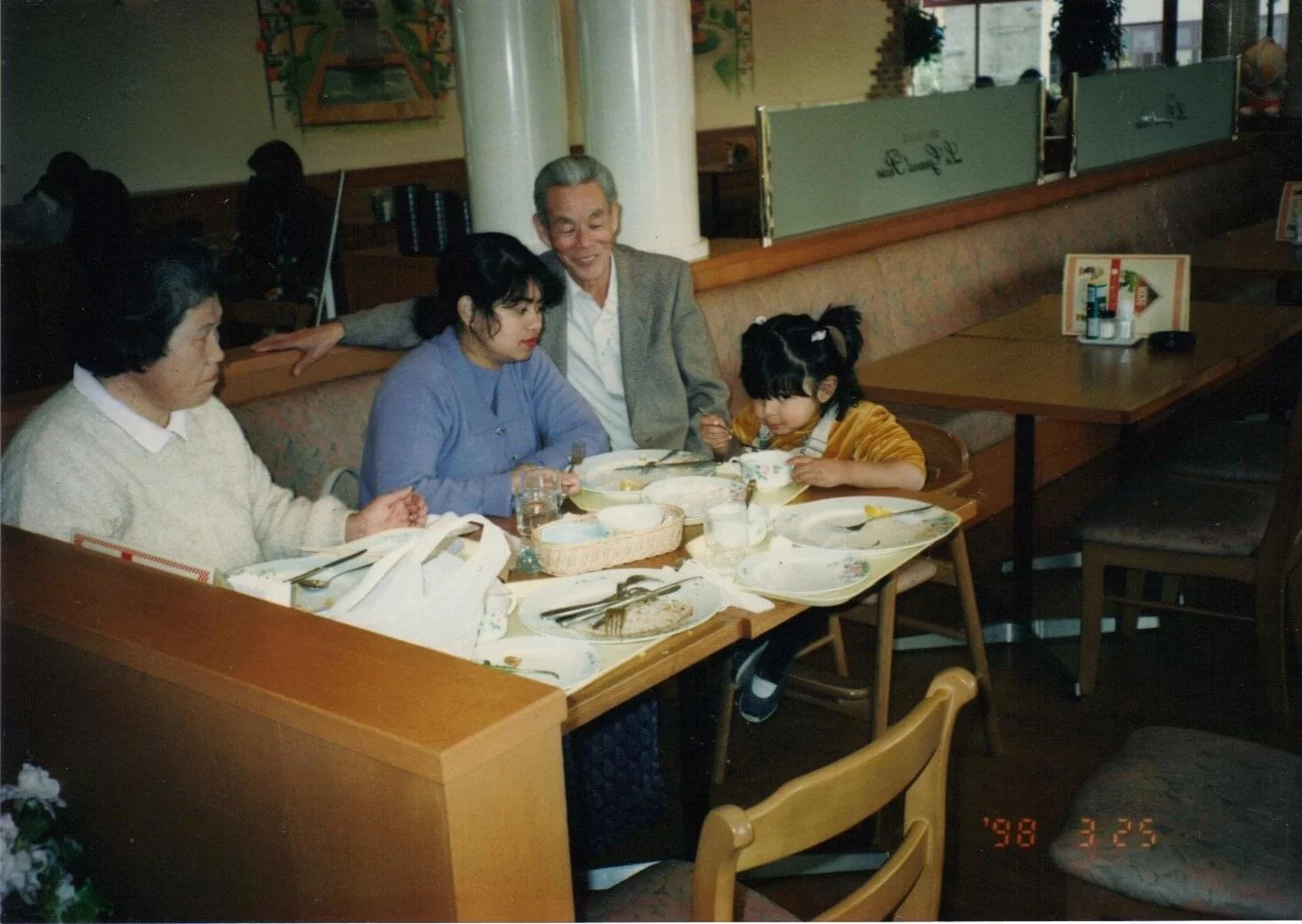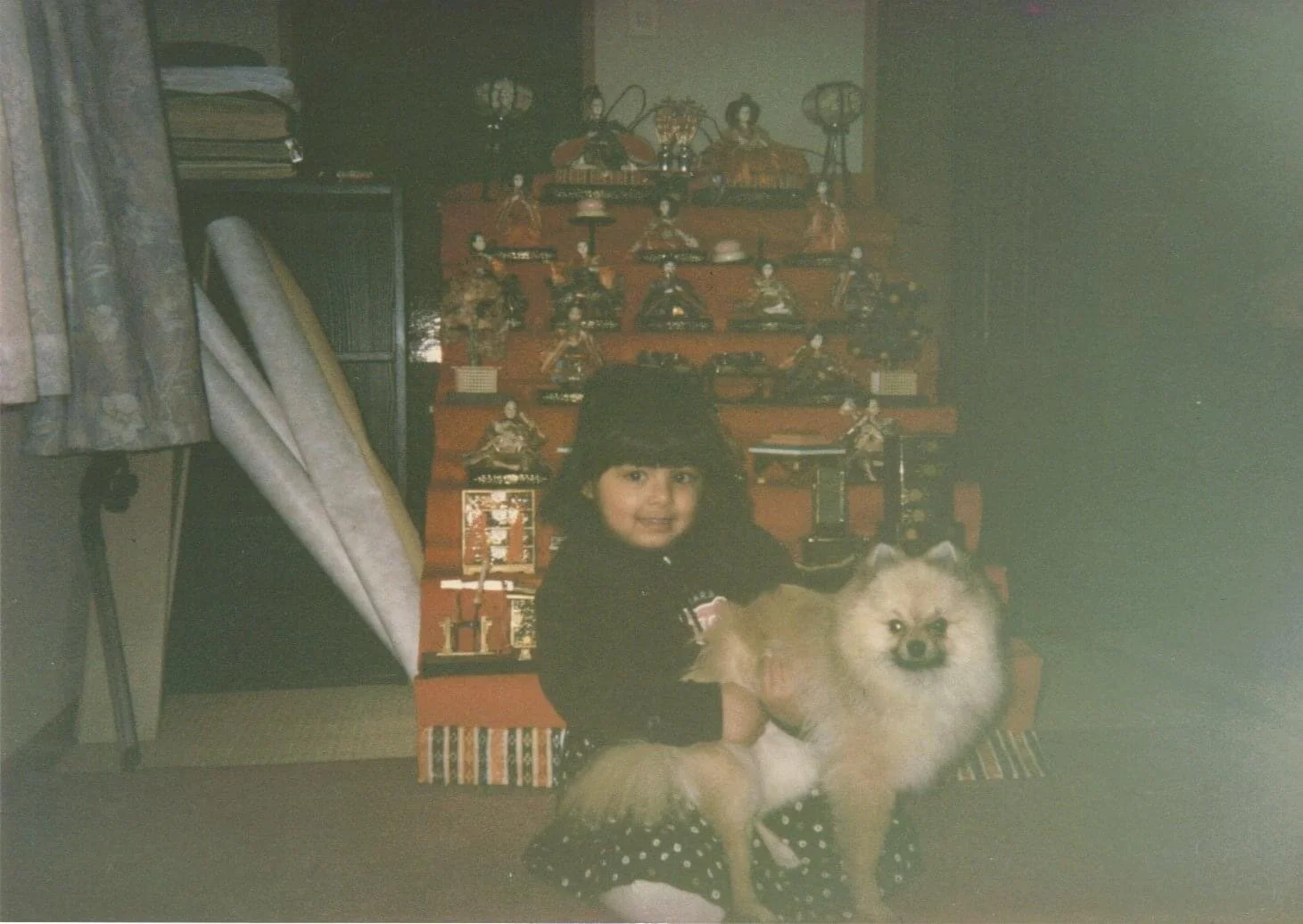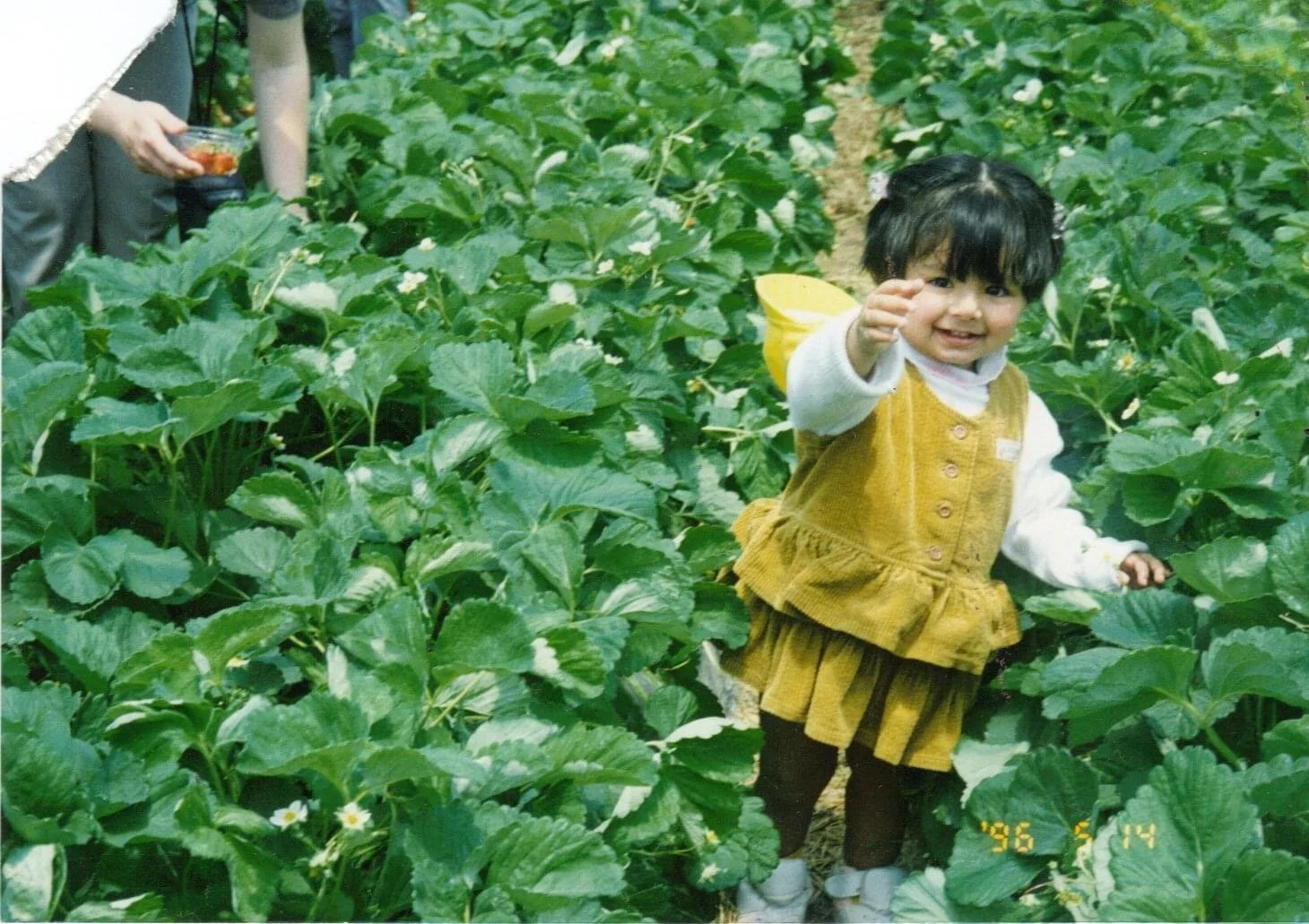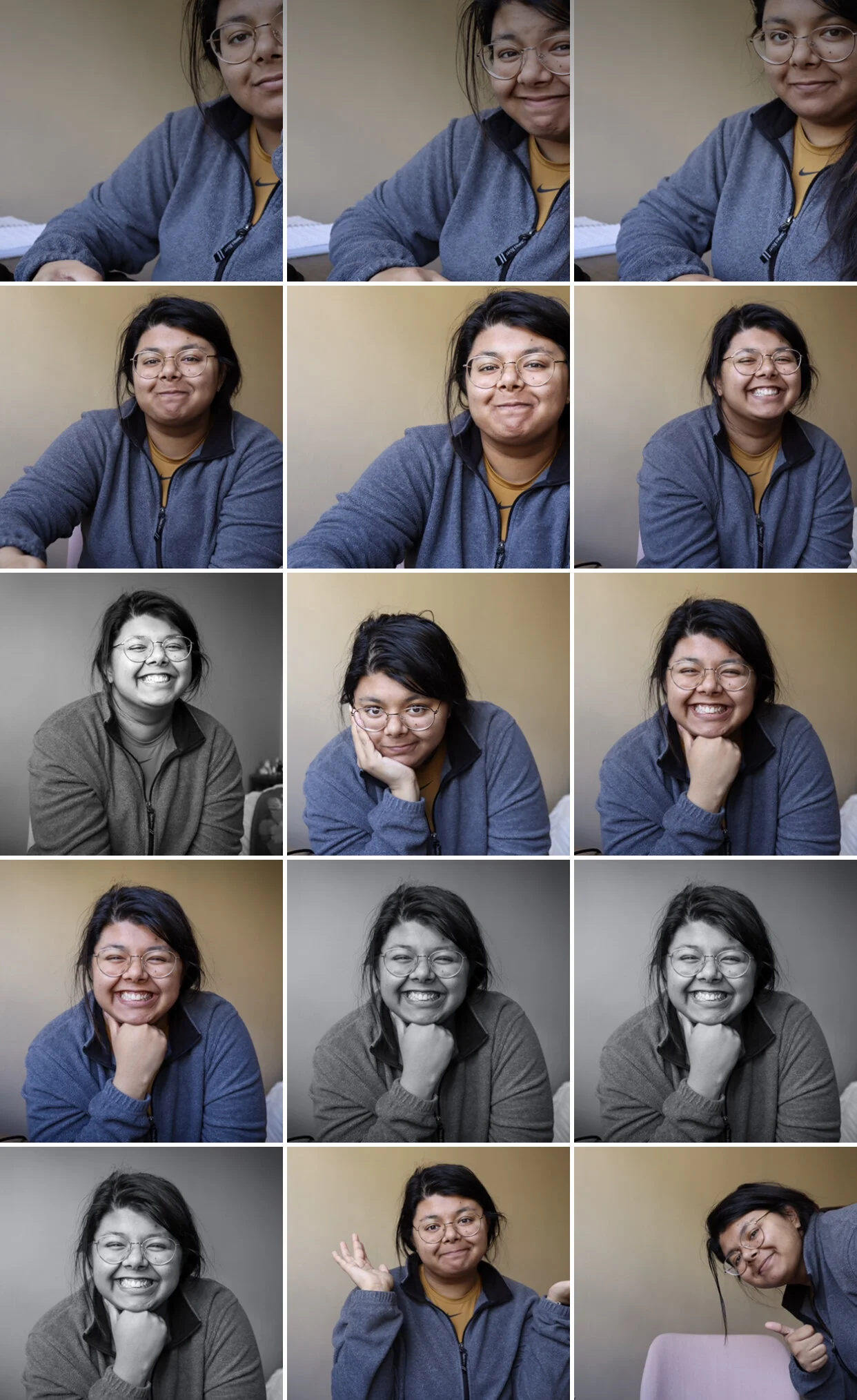A Very Personal Statement
Okay, I’m going through the tedious task of writing a personal statement for [redacted]. I thought I had it, only to realize that I wasn’t writing for [redacted] but for myself. But here I am, sharing my very personal statement. Why? Because I’m a narcissist, and I'm also procrastinating on writing my next draft of my (professional) personal statement. Jokes aside, I’m sharing, because I think this provides a historical background on who I am and why I am this way. Please be kind.
Photos from my early childhood in Japan, thanks to my momma.
Okay, I’m going through the tedious task of writing a personal statement for [redacted]. I have been working on this thing for weeks. I thought I had it, and then I realized that I wasn’t writing for [redacted], but for myself. I’ve gotten into the habit of journaling and blogging. I’m a horrible blogger, in the sense that I don’t think of my audience when I write these things. So, this could be an admittance that I’m narcissistic. Yikes.
But here I am, sharing my very personal statement. Why? Because I’m a narcissist, and I'm also procrastinating on writing my next draft of my (professional) personal statement. Jokes aside, I’m sharing, because I think this provides a historical background on who I am and why I am this way. Please be kind.
I speak about this a lot, but I have spent my entire life trying to fit in. I was born in Japan, while my parents were born and raised in Bangladesh. I moved to another foreign country (the United States) when I was five years old. I began the process of assimilation in a kindergarten classroom. I am a third-culture kid in every sense of the phrase. I don’t quite belong, wherever I am.
My parents moved us to the United States, in pursuit of the American dream. I’ve spent the last two decades in pursuit of the American bargain. I often think of this statement Hillary Clinton made in her 2015 campaign announcement, “If you do your part you ought to be able to get ahead. And when everybody does their part, America gets ahead too.” It seems too simple. Work hard, do your part, and you’ll get ahead.
And so, I embarked on this mission, except I didn’t know how to choose a college or what major would be a good fit for me. I didn’t understand the workings of financial aid, or taxes, for that matter. I figured it out along the way and tried to piece my future together. It turns out, that I picked the wrong major and career path at 17. It only took two years to realize that mistake and change my major to political science.
After I changed my major, everything fell into place. An elective course led me to Washington, D.C., where I learned about the issue of childhood hunger. I never experienced food insecurity as a child, but the same cannot be said for my parents.
There is a theme about immigrant identity writing, we commodify our pain and hardship for the white gaze. We can exploit our stories to garner sympathy, knowing that trauma sells - our collective trauma sells. But, I don’t have a right to sell you my (or my parents’) pain and you shouldn’t want to buy it.
Although this story is personal to me, it feels like any other immigrant story. We came to this country, thinking that we had come to the land of opportunity. It never occurred to me that some opportunities were going to be harder for me to achieve because of the color of my skin, my socioeconomic status, or my sex. It seems simple, but I really believe that if you work hard, you should get a fair chance to get ahead. I now spend my time envisioning what radical inclusion could look like, what it would mean for everyone to belong in the systems they’re in.
My pain and oppression don’t drive me, my dreams do.
I Hate It Here
A peek into my daily existential crisis.
“I hate it here.” I have uttered these fateful words at least once a day since July. I picked up the phrase from a colleague, who picked it up from a tweet or a meme. Thus, confirming that I am nothing but an amalgamation of things I’ve seen or heard. That doesn’t make this statement less true. I hate it here.
“Here” is all encompassing. It describes every part of my being. I go to sleep, struggling to quiet the racing thoughts. I have vivid dreams - my brain attempting to process the stress. I wake up with a knot in the pit of my stomach, feeling the weight of the anxiety. I sit in silence, hoping it will subside. When it doesn’t, I carry it with me, until it’s time to sleep again.
My cycle of subtle agony is punctuated by attempts to be social. I go on social media, hoping to find community - to see someone else like me. I hope to gather some insight, some understanding of how others are dealing with any of it. I see nothing but the trappings of my echo chamber. Maybe I can find a clever phrase or meme to garnish my struggle with humor.
You know what I hate? It here.
Every foray into social media leaves me with a sense of doom - another thing to be angry about, another knot in my stomach, another reason to hate it here. I attempt to compile my thoughts into an aesthetic post, arranging words with a superficial font, convincing myself that I have something to say that others haven’t already said. Upon posting, I convince myself that I do not care what others think. I delete the app.
I download the app again.
I could delete my accounts. I could delete my social presence. But, how will people know what I have to say? Why should people care? Why do I want people to care? What has convinced me to believe that I have enough social clout to garner any interest? How did I become so dependent?
Social media has convinced me that my words have no meaning if they aren’t shared. I feel like I’ve been manipulated into thinking I need something I don’t. It’s a toxic cycle.
I hate it here.
The Woods Don’t Judge
I was a suburban city slicker… until I wasn’t. I take to the woods a lot these days. I’m now becoming a mildly granola suburban city slicker. How many times can I use this phrase without being annoying?
I’ve been trying to write. I have started and stopped writing a dozen times in the last few weeks - about heavy feelings and hard experiences. I think I know what I want to say, but it doesn’t translate onto the page. I know what’s wrong. I’m burnt out. I don’t realize that I’m burning out until it’s too late. I’ll talk about the cause later, but I’ll share how I manage the effects.
When I’m burnt out, I can think of one thing and one thing only - escape. I focus on the idea of dropping everything, going off the grid, and starting a new life with a new name in a new location. I’m angry and insufferable until I find a release. Since I can’t escape to a new life every time I’m burnt out (yes, it happens more often than I’d like), I escape to nature.
This would be surprising to anyone that’s known me for longer than the last three years. I used to hate nature. I hated the outdoors, because that’s where bugs are. I hated dirt. I hated sand. I never sat on grass and mostly avoided walking on it. I was a suburban city slicker and I liked my brand… until my life started to change.
I started to change. I started to wear down, and eventually fall apart. I was lost in obligations and expectations, none of them my own. I was pouring from an empty cup, even when the cup broke in multiple places - I kept ignoring it. I wouldn’t stop until my body physically shut down. I couldn’t do anything I’d normally do. That’s when I thought about a phrase I heard from a mentor and former colleague, “the woods don’t judge.”
I tested the theory by taking to the woods. I walked without a destination. I walked without purpose. I focused on the feeling of the ground beneath my feet. I felt the protective cover of the trees. I remember feeling like I could just disappear into the woods and that I was completely alone - until I felt the warmth of the sun. The light found me through the trees and stayed with me the rest of the way. If it sounds like a dream, it’s because it felt like one. I found solace in nature, and felt like myself again.
And so I expanded my brand - I’m now a mildly granola suburban city slicker. I go on long walks in the woods. I find trails on weekends. I go to new states to hike new trails and spend time around mountains and trees. I own Patagonia gear. I like spending time in REI. I went camping and peed outside (a plot twist like no other in my complicated narrative).
Why does this matter? Woods and water are the only things that pulled me out of the worst times of my life. When I felt like I couldn’t move, my feet managed to find a path and take me through a trail - literally grounding me. The woods don’t judge when I’m at my worst. The woods don’t judge when I cry from being overwhelmed. The woods don’t judge as I find my way back in my body. The woods don’t judge.
There’s so much more I want to say, but I think you should experience it for yourself. Get a little lost in the woods, let nature guide you. And let’s give back to nature when we can - combat climate change and help those affected by forest fires in California and Oregon.
What is it about Normal People?
I’ve been thinking about Sally Rooney’s “Normal People” for months. I read the novel a lifetime ago (March of this year). Everyone in my life is probably (read: definitely) tired of hearing me talk about it. This story stuck with me, and I hope you’ll do the same as I try to get to the root of what it is about Normal People that lends itself to obsession. For those that haven’t read it yet, here’s the premise:
Connell and Marianne grew up in the same small town in Ireland. The book picks up with them in school, where their relationship starts. We follow them through their years at Trinity College as they gravitate towards each other through various degrees of love and friendship.
Simple enough, right? Wrong.
The book jumps right into Marianne and Connell’s lives, and doesn’t provide frivolous context. Rooney trusts the reader to catch on quickly, and why wouldn’t you? The story is all too familiar to anyone who’s endured the trials and tribulations of youthful infatuation and general adolescence. Time moves quickly in the novel, which may explain why the book is so hard to put down. By switching perspectives between Marianne and Connell, Rooney let’s the reader in on what the other can’t see. It’s a frustrating experience. The reader has to stand by as Marianne and Connell fall victim to miscommunication, as both of them struggle to express their true feelings.
It’s brilliant. You can’t help but be invested when you’re in both of their heads. You don’t even have to like Marianne or Connell to feel for them. Their story feels personal and universal at the same time. Both characters are flawed and transitioning through an important phase of life. They make mistakes. They handle things poorly. They are susceptible to peer pressure. They are learning. They are growing - together and apart. Although Marianne and Connell are the focus of the story, their relationships with peripheral characters are telling. Both of them find themselves trapped in friendships of convenience, making decisions that they wouldn’t have made otherwise - Connell in high school, and Marianne in college. I don’t know about you, but I’ve been there, done that, and had similar regrets.
You see Marianne and Connell change as time passes. Marianne is simultaneously intimidating and insecure. You watch as physical and emotional abuse wear her down over time, changing her from a defiant girl to a submissive young woman. Connell is brilliant, but painstakingly shy. He represents the classic aspiration of fitting in and belonging somewhere. He is crippled by his desire to be liked by everyone and his fear of being judged by everyone. He straddles between the identities he has tried on for everyone else, but himself and Marianne. I could be projecting, but I think they both just want to be liked for who they are.
This book gnawed at feelings that I’ve been repressing since my own years in school. There were multiple times when I felt like I could be both Marianne and Connell. It’s a testament to Rooney’s writing that the story feels so personal. It means something when a stranger describes feelings you couldn’t find the words for. Rooney manages to create a collective outlet for individual feelings and experiences. If I can find myself relating to two small-town Irish students, maybe my experiences are more common than my anxiety makes me think. Maybe Marianne and Connell are just as normal as I am.
Photo by Enda Bowe
After I finished the book for the first time, I felt unsettled. I needed more. There had to be more. Luckily, we get more in the form of a TV adaptation. The show is a seamless adaptation, and we see Marianne and Connell come to life through Daisy Edgar Jones and Paul Mescal. They are the perfect embodiment of these characters, portraying every emotion authentically and honestly. It didn’t feel like a performance. The show only added to the depth of the story - a visual translation that made everything more real.
There is no internal monologue to support scenes in the show. There is just Marianne, Connell, and the dynamic that exists between them (a character in itself). The intimacy between them is tangible, the chemistry is palpable (I’ve basically said the same thing twice, let’s see who notices). I found my anxiety building while watching the show. There were moments when I felt like something was off. I only realized after, that it felt wrong when Marianne and Connell weren’t in scenes together. It’s subtle, but it’s there and it’s a little devastating. The whole experience is painful and beautiful.
Both the novel and the adaptation give a full representation of young love. You don’t need one to enjoy the other. They can stand alone as works of art, but I think they’re better together - similar to Marianne and Connell.
I sobbed multiple times while watching the show. I had so many feelings. I have so many feelings. Sometimes, I feel embarrassed by how much the story has affected me. How could I let fictional characters hurt me so much? The answer came from the novel itself:
It feels intellectually unserious to concern himself with fictional people marrying one another. But there it is: literature moves him.
It’s that simple. I was moved by Normal People. Isn’t that the point of great art? To make people feel something? I won’t apologize for feeling so much. It’s normal.
In the meantime, you can find me following Connell’s Chain on instagram and listening to Hide and Seek on repeat.
Dear Riya
I’ve been subscribing to Suleika Jaouad’s Isolation Journals. Every day, you get a creative writing prompt in your inbox, open to your own interpretation and expression. Although I haven’t been following the prompts each day, it’s helped surface new ideas and feelings and makes me want to write. Today, I’m sharing the prompt from Day 14: “In the voice of someone who loves you.”
Write a love note to yourself. Start with the line: Dear [your name], If you could see what I see, you’d see that you are...
Dear Riya,
If you could see what I see, you would see that you are a force of nature. You are grounded in your values and relentless in your pursuit of what’s fair. Your definition of what’s fair is constantly evolving, as you grow and learn more about yourself and the world around you.
You are reactive and adapt to your environment. I can see you struggling to find balance between being self-less and losing yourself entirely. I don’t want you to lose yourself completely.
It’s okay to get lost in someone else’s story and feel what they feel. I’m glad to see you stand up for what you believe is right, regardless of the consequences. I love that you can’t hide your expressions to save your life. Every emotion is translated on your face, and it reads like a map to those who are paying attention. I love that you try to build community everywhere you go, and that you genuinely love people.
I know you’re more guarded these days, but I hope you don’t close yourself off and become jaded. Stick to your convictions and remember that you are a force of nature - one that’s still uncovering her purpose.
With love,
Riya
